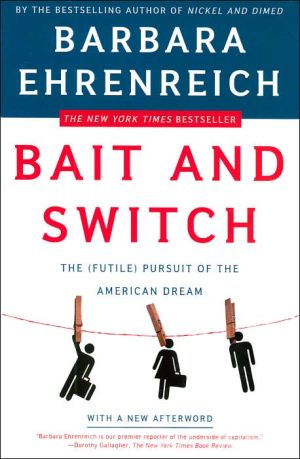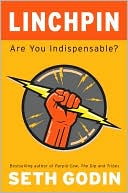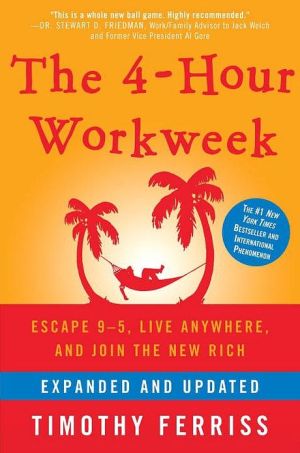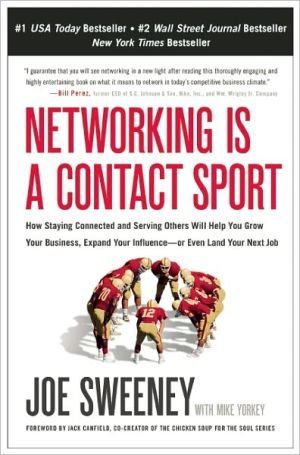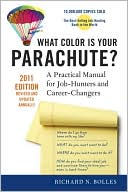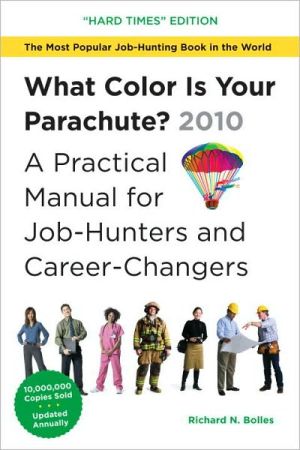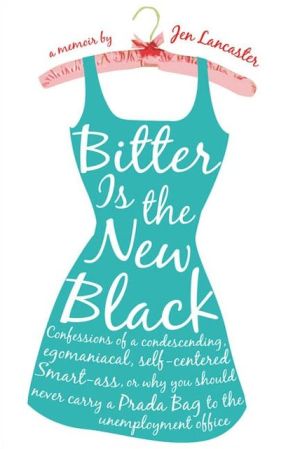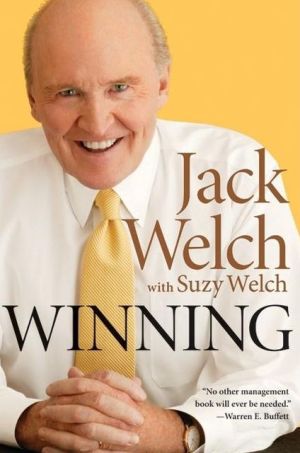Bait and Switch: The (Futile) Pursuit of the American Dream
The New York Times bestselling investigation into white-collar unemployment from “our premier reporter of the underside of capitalism”—The New York Times Book Review\ Americans’ working lives are growing more precarious every day. Corporations slash employees by the thousands, and the benefits and pensions once guaranteed by “middle-class” jobs are a thing of the past.\ In Bait and Switch, Barbara Ehrenreich goes back undercover to explore another hidden realm of the economy: the shadowy...
Search in google:
The bestselling author of Nickel and Dimed goes back undercover to do for America’s ailing middle class what she did for the working poorBarbara Ehrenreich’s Nickel and Dimed explored the lives of low-wage workers. Now, in Bait and Switch, she enters another hidden realm of the economy: the shadowy world of the white-collar unemployed. Armed with a plausible résumé of a professional “in transition,” she attempts to land a middle-class job—undergoing career coaching and personality testing, then trawling a series of EST-like boot camps, job fairs, networking events, and evangelical job-search ministries. She gets an image makeover, works to project a winning attitude, yet is proselytized, scammed, lectured, and—again and again—rejected.Bait and Switch highlights the people who’ve done everything right—gotten college degrees, developed marketable skills, and built up impressive résumés—yet have become repeatedly vulnerable to financial disaster, and not simply due to the vagaries of the business cycle. Today’s ultra-lean corporations take pride in shedding their “surplus” employees—plunging them, for months or years at a stretch, into the twilight zone of white-collar unemployment, where job searching becomes a full-time job in itself. As Ehrenreich discovers, there are few social supports for these newly disposable workers—and little security even for those who have jobs. Like the now classic Nickel and Dimed, Bait and Switch is alternately hilarious and tragic, a searing exposé of economic cruelty where we least expect it. The Washington Post - Marcellus Andrews Barbara Ehrenreich's Bait and Switch is a worthy companion to Nickel and Dimed, her engaging and infuriating 2001 exposé of the hard lives of working-class Americans. The new book provides a victim's-eye view of the world of unemployed white-collar workers -- people struggling, mostly in vain, to recoup the high wages and prestige they lost after being dismissed from the not-so-secure confines of corporate America.
Introduction\ Because I've written a lot about poverty, I'm used to hearing from people in scary circumstances. An eviction notice has arrived. A child has been diagnosed with a serious illness and the health insurance has run out. The car has broken down and there's no way to get to work. These are the routine emergencies that plague the chronically poor. But it struck me, starting in about 2002, that many such tales of hardship were coming from people who were once members in good standing of the middle class—college graduates and former occupants of midlevel white-collar positions. One such writer upbraided me for what she saw as my neglect of hardworking, virtuous people like herself.\ Try investigating people like me who didn't have babies in high school, who made good grades, who work hard and don't kiss a lot of ass and instead of getting promoted or paid fairly must regress to working for $7/hr., having their student loans in perpetual deferment, living at home with their parents, and generally exist in debt which they feel they may never get out of.\ Stories of white-collar downward mobility cannot be brushed off as easily as accounts of blue-collar economic woes, which the hard-hearted traditionally blame on "bad choices": failing to get a college degree, for example, failing to postpone childbearing until acquiring a nest egg, or failing to choose affluent parents in the first place. But distressed white-collar people cannot be accused of fecklessness of any kind; they are the ones who "did everything right." They earned higher degrees, often setting aside their youthful passion for philosophy or music to suffer through dull practical majors like management or finance. In some cases, they were high achievers who ran into trouble precisely because they had risen far enough in the company for their salaries to look like a tempting cost cut. They were the losers, in other words, in a classic game of bait and switch. And while blue-collar poverty has become numbingly routine, white-collar unemployment—and the poverty that often results—remains a rude finger in the face of the American dream.\ I realized that I knew very little about the mid- to upper levels of the corporate world, having so far encountered this world almost entirely through its low-wage, entry-level representatives. I was one of them—a server in a national chain restaurant, a cleaning person, and a Wal-Mart "associate"—in the course of researching an earlier book, Nickel and Dimed: On (Not) Getting By in America. Like everyone else, I've also encountered the corporate world as a consumer, dealing with people quite far down in the occupational hierarchy—retail clerks, customer service representatives, telemarketers. Of the levels where decisions are made—where the vice presidents, account executives, and regional managers dwell—my experience has been limited to seeing these sorts of people on airplanes, where they study books on "leadership," fiddle with spreadsheets on their laptops, or fall asleep over biographies of the founding fathers.1 I'm better acquainted with the corporate functionaries of the future, many of whom I've met on my visits to college campuses, where "business" remains the most popular major, if only because it is believed to be the safest and most lucrative.2\ But there have been growing signs of trouble—if not outright misery—within the white-collar corporate workforce. First, starting with the economic downturn of 2001, there has been a rise in unemployment among highly credentialed and experienced people. In late 2003, when I started this project, unemployment was running at about 5.9 percent, but in contrast to earlier economic downturns, a sizable portion—almost 20 percent, or about 1.6 million—of the unemployed were white-collar professionals.3 Previous downturns had disproportionately hit blue-collar people; this time it was the relative elite of professional, technical, and managerial employees who were being singled out for media sympathy. In April 2003, for example, the New York Times Magazine offered a much-discussed cover story about a former $300,000-a-year computer industry executive reduced, after two years of unemployment, to working as a sales associate at the Gap.4 Throughout the first four years of the 2000s, there were similar stories of the mighty or the mere midlevel brought low, ejected from their office suites and forced to serve behind the counter at Starbucks.\ Today, white-collar job insecurity is no longer a function of the business cycle—rising as the stock market falls and declining again when the numbers improve.5 Nor is it confined to a few volatile sectors like telecommunications or technology, or a few regions of the country like the rust belt or Silicon Valley. The economy may be looking up, the company may be raking in cash, and still the layoffs continue, like a perverse form of natural selection, weeding out the talented and successful as well as the mediocre. Since the midnineties, this perpetual winnowing process has been institutionalized under various euphemisms such as "downsizing," "right-sizing," "smart-sizing," "restructuring," and "de-layering"—to which we can now add the outsourcing of white-collar functions to cheaper labor markets overseas.\ In the metaphor of the best-selling business book of the first few years of the twenty-first century, the "cheese"—meaning a stable, rewarding, job—has indeed been moved. A 2004 survey of executives found 95 percent expecting to move on, voluntarily or otherwise, from their current jobs, and 68 percent concerned about unexpected firings and layoffs.6 You don't, in other words, have to lose a job to feel the anxiety and despair of the unemployed.\ A second sign of trouble could be called "overemployment." I knew, from my reading, that mid- and high-level corporate executives and professionals today often face the same punishing demands on their time as low-paid wage earners who must work two jobs in order to make ends meet. Economist Juliet Schor, who wrote The Overworked American, and business journalist Jill Andresky Fraser, author of White Collar Sweatshop, describe stressed-out white-collar employees who put in ten- to twelve-hour-long days at the office, continue to work on their laptops in the evening at home, and remain tethered to the office by cell phone even on vacations and holidays. "On Wall Street, for example," Fraser reports, "it is common for a supervisor to instruct new hires to keep a spare set of clothes and toothbrush in the office for all those late night episodes when it just won't make sense to head home for a quick snooze."7 She quotes an Intel employee:\ If you make the choice to have a home life, you will be ranked and rated at the bottom. I was willing to work the endless hours, come in on weekends, travel to the ends of the earth. I had no hobbies, no outside interests. If I wasn't involved with the company, I wasn't anything.8\ Something, evidently, is going seriously wrong within a socioeconomic group I had indeed neglected as too comfortable and too powerful to merit my concern. Where I had imagined comfort, there is now growing distress, and I determined to investigate. I chose the same strategy I had employed in Nickel and Dimed: to enter this new world myself, as an undercover reporter, and see what I could learn about the problems firsthand. Were people being driven out of their corporate jobs? What did it take to find a new one? And, if things were as bad as some reports suggested, why was there so little protest?\ The plan was straightforward enough: to find a job, a "good" job, which I defined minimally as a white-collar position that would provide health insurance and an income of about $50,000 a year, enough to land me solidly in the middle class. The job itself would give me a rare firsthand glimpse into the midlevel corporate world, and the effort to find it would of course place me among the most hard-pressed white-collar corporate workers—the ones who don't have jobs.\ Since I wanted to do this as anonymously as possible, certain areas of endeavor had to be excluded, such as higher education, publishing (magazines, newspapers, and books), and nonprofit liberal organizations. In any of these, I would have run the risk of being recognized and perhaps treated differently—more favorably, one hopes—than the average job seeker. But these restrictions did not significantly narrow the field, since of course most white-collar professionals work in other sectors of the for-profit, corporate world—from banking to business services, pharmaceuticals to finance.\ The decision to enter corporate life—and an unfamiliar sector of it, at that—required that I abandon, or at least set aside, deeply embedded attitudes and views, including my long-standing critique of American corporations and the people who lead them. I had cut my teeth, as a fledgling investigative journalist in the seventies, on the corporations that were coming to dominate the health-care system: pharmaceutical companies, hospital chains, insurance companies. Then, sometime in the eighties, I shifted my attention to the treatment of blue- and pink-collar employees, blaming America's intractable level of poverty—12.5 percent by the federal government's official count, 25 percent by more up-to-date measures—on the chronically low wages offered to nonprofessional workers. In the last few years, I seized on the wave of financial scandals—from Enron through, at the time of this writing, HealthSouth and Hollingers International—as evidence of growing corruption within the corporate world, a pattern of internal looting without regard for employees, consumers, or even, in some cases, stockholders.\ But for the purposes of this project, these criticisms and reservations had to be set aside or shoved as far back in my mind as possible. Like it or not, the corporation is the dominant unit of the global economy and the form of enterprise that our lives depend on in a day-to-day sense. I write this on an IBM laptop while sipping Lipton tea and wearing clothes from the Gap—all major firms or elements thereof. It's corporations that make the planes run (though not necessarily on time), bring us (and increasingly grow) our food, and generally "make it happen." I'd been on the outside of the corporate world, often complaining bitterly, and now I wanted in.\ This would not, I knew, be an altogether fair test of the job market, if only because I had some built-in disadvantages as a job seeker. For one thing, I am well into middle age, and since age discrimination is a recognized problem in the corporate world even at the tender age of forty, I was certainly vulnerable to it myself. This defect, however, is by no means unique to me. Many people—from displaced homemakers to downsized executives—now find themselves searching for jobs at an age that was once associated with a restful retirement.\ Furthermore, I had the disadvantage of never having held a white-collar job with a corporation. My one professional-level office job, which lasted for about seven months, was in the public sector, at the New York City Bureau of the Budget. It had involved such typical white-collar activities as attending meetings, digesting reports, and writing memos; but that was a long time ago, before cell phones, PowerPoint, and e-mail. In the corporate world I now sought to enter, everything would be new to me: the standards of performance, the methods of evaluation, the lines and even the modes of communication. But I'm a quick study, as you have to be in journalism, and counted on this to get me by.\ The first step was to acquire a new identity and personal history to go with it, meaning, in this case, a résumé. It is easier to change your identity than you might think. Go to Alavarado and Seventh Street in Los Angeles, for example, and you will be approached by men whispering, "ID, ID." I, however, took the legal route, because I wanted my documents to be entirely in order when the job offers started coming in. My fear, perhaps exaggerated, was that my current name might be recognized, or would at least turn up an embarrassing abundance of Google entries. So in November 2003 I legally changed back to my maiden name, Barbara Alexander, and acquired a Social Security card to go with it.\ As for the résumé: although it had to be faked, I wanted it as much as possible to represent my actual skills, which, I firmly believed, would enrich whatever company I went to work for. I am a writer—author of thousands of published articles and about twelve nonfiction books, counting the coauthored ones—and I know that "writing" translates, in the corporate world, into public relations or "communications" generally. Many journalism schools teach PR too, which may be fitting, since PR is really journalism's evil twin. Whereas a journalist seeks the truth, a PR person may be called upon to disguise it or even to advance an untruth. If your employer, a pharmaceutical company, claims its new drug cures both cancer and erectile dysfunction, your job is to promote it, not to investigate the grounds for these claims.\ I could do this, on a temporary basis anyway, and have even done many of the things PR people routinely do: I've written press releases, pitched stories to editors and reporters, prepared press packets, and helped arrange press conferences. As an author, I have also worked closely with my publisher's PR people and have always found them to be intelligent and in every way congenial.\ I have also been an activist in a variety of causes over the years, and this experience too must translate into something valuable to any firm willing to hire me. I have planned meetings and chaired them; I have worked in dozens of diverse groups and often played a leadership role in them; I am at ease as a public speaker, whether giving a lengthy speech or a brief presentation on a panel—all of which amounts to the "leadership" skills that should be an asset to any company. At the very least, I could claim to be an "event planner," capable of dividing gatherings into plenaries and break-out sessions, arranging the press coverage, and planning the follow-up events.\ Even as a rough draft, the résumé took days of preparation. I had to line up people willing to lie for me, should they be called by a potential employer, and attest to the fine work I had done for them. Fortunately, I have friends who were willing to do this, some of them located at recognizable companies. Although I did not dare claim actual employment at these firms, since a call to their Human Resources departments would immediately expose the lie, I felt I could safely pretend to have "consulted" to them over the years. Suffice it to say that I gave Barbara Alexander an exemplary history in public relations, sometimes with a little event planning thrown in, and that the dissimulation involved in crafting my new résumé was further preparation for any morally challenging projects I should be called upon to undertake as a PR person.\ I did not, however, embellish my new identity with an affect or mannerisms different from my own. I am not an actor and would not have been able to do this even if I had wanted to. "Barbara Alexander" was only a cover for Barbara Ehrenreich; her behavior would, for better or worse, always be my own. In fact, in a practical sense I was simply changing my occupational status from "self-employed/writer" to "unemployed"—a distinction that might be imperceptible to the casual observer. I would still stay home most days at my computer, only now, instead of researching and writing articles, I would be researching and contacting companies that might employ me. The new name and fake résumé were only my ticket into the ranks of the unemployed white-collar Americans who spend their days searching for a decent-paying job.\ The project required some minimal structure; since I was stepping into the unknown, I needed to devise some guidelines for myself. My first rule was that I would do everything possible to land a job, which meant being open to every form of help that presented itself: utilizing whatever books, web sites, and businesses, for example, that I could find offering guidance to job seekers. I would endeavor to behave as I was expected to, insofar as I could decipher the expectations. I did not know exactly what forms of effort would be required of successful job seekers, only that I would, as humbly and diligently as possible, give it my best try.\ Second, I would be prepared to go anywhere for a job or even an interview, and would advertise this geographic flexibility in my contacts with potential employers. I was based in Charlottesville, Virginia, throughout this project, but I was prepared to travel anywhere in the United States to get a job and then live there for several months if I found one. Nor would I shun any industry—other than those where I might be recognized—as unglamorous or morally repugnant. My third rule was that I would have to take the first job I was offered that met my requirements as to income and benefits.\ I knew that the project would take a considerable investment of time and money, so I set aside ten months9 and the sum of $5,000 for travel and other expenses that might arise in the course of job searching. My expectation was that I would make the money back once I got a job and probably come out far ahead. As for the time, I budgeted roughly four to six months for the search—five months being the average for unemployed people in 200410—and another three to four months of employment. I would have plenty of time both to sample the life of the white-collar unemployed and to explore the corporate world they sought to reenter.\ From the outset, I pictured this abstraction, the corporate world, as a castle on a hill—well fortified, surrounded by difficult checkpoints, with its glass walls gleaming invitingly from on high. I knew that it would be a long hard climb just to get to the door. But I've made my way into remote and lofty places before—college and graduate school, for example. I'm patient and crafty; I have stamina and resolve; and I believed that I could do this too.\ In fact, the project, as I planned it, seemed less challenging than I might have liked. As an undercover reporter, I would of course be insulated from the real terrors of the white-collar work world, if only because I was independent of it for my income and self-esteem. Most of my fellow job seekers would probably have come to their status involuntarily, through layoffs or individual firings. For them, to lose a job is to enter a world of pain. Their income collapses to the size of an unemployment insurance check; their self-confidence plummets. Much has been written about the psychological damage incurred by the unemployed—their sudden susceptibility to depression, divorce, substance abuse, and even suicide.11 No such calamities could occur in my life as an undercover job seeker and, later, jobholder. There would be no sudden descent into poverty, nor any real sting of rejection.\ I also started with the expectation that this project would be far less demanding than the work I had undertaken for Nickel and Dimed. Physically, it would be a piece of cake—no scrubbing, no heavy lifting, no walking or running for hours on end. As for behavior, I imagined that I would be immune from the constant subservience and obedience demanded of low-wage blue-collar workers, that I would be far freer to be, and express, myself. As it turns out, I was wrong on all counts.\ Copyright © 2005 by Barbara Ehrenreich
\ From Barnes & NobleIn Nickel and Dimed, Barbara Ehrenreich went inside the lives of "the working poor," low-wage workers who struggle to make ends meet. In Bait and Switch, she assumes a new identity in another hidden realm of our economy: the shadowy world of the white-collar unemployed. These displaced people had done everything right -- earned college degrees, developed marketable skills, built up impressive resumes -- yet remained totally vulnerable to "downsizing." To experience their plight, Ehrenreich readopted her maiden name, constructed a plausible job history, and assumed her place on a treadmill of career boot camps, job fairs, networking events, personality tests, and career coaching. A first-person look at what happens when job-hunting becomes a full-time job.\ \ \ \ \ The New YorkerSeveral years ago, Ehrenreich, a veteran muckraker, went to work in a variety of low-paying jobs to expose the harsh plight of the working poor; the resulting book, “Nickel and Dimed,” was an effective diatribe against the erosion of minimum wages and social safety nets. Here she goes incognito, under the cover of her maiden name (Alexander) and a lacklustre résumé, to find a white-collar job, preferably one with a title, benefits, and a minimum salary of fifty thousand a year. The idea was to worm into corporate America and expose the panicky insecurity of mid-level professionals in the downsized, outsourced New Economy. But, even after seemingly endless bouts of career-coaching sessions, networking events, and makeovers, the best offer “Barbara Alexander” gets is for a commission-only gig selling AFLAC medical insurance. It’s hard to tell whether the flaw lies in American capitalism or in the invention of Barbara Alexander.\ \ \ Marcellus AndrewsBarbara Ehrenreich's Bait and Switch is a worthy companion to Nickel and Dimed, her engaging and infuriating 2001 exposé of the hard lives of working-class Americans. The new book provides a victim's-eye view of the world of unemployed white-collar workers -- people struggling, mostly in vain, to recoup the high wages and prestige they lost after being dismissed from the not-so-secure confines of corporate America.\ — The Washington Post\ \ \ \ \ Publishers WeeklyA wild bestseller in the field of poverty writing, Ehrenreich's 2001 expos of working-class hardship, Nickel and Dimed, sold over a million copies in hardcover and paper. If even half that number of people buy this follow-up, which purports "to do for America's ailing middle class what [Nickel and Dimed] did for the working poor," it too will shoot up the bestseller lists. But PW suspects that many of those buyers will be disappointed. Ehrenreich can't deliver the promised story because she never managed to get employed in the "midlevel corporate world" she wanted to analyze. Instead, the book mixes detailed descriptions of her job search with indignant asides about the "relentlessly cheerful" attitude favored by white-collar managers. The tone throughout is classic Ehrenreich: passionate, sarcastic, self-righteous and funny. Everywhere she goes she plots a revolution. A swift read, the book does contain many trenchant observations about the parasitic "transition industry," which aims to separate the recently fired from their few remaining dollars. And her chapter on faith-based networking is revelatory and disturbing. But Ehrenreich's central story fails to generate much sympathy-is it really so terrible that a dabbling journalist can't fake her way into an industry where she has no previous experience?-and the profiles of her fellow searchers are too insubstantial to fill the gap. Ehrenreich rightly points out how corporate culture's focus on "the power of the individual will" deters its employees from organizing against the market trends that are disenfranchising them, but her presentation of such arguments would have been a lot more convincing if she could have spent some time in a cubicle herself. (Sept.) Copyright 2005 Reed Business Information.\ \ \ \ \ Library JournalThree years ago, journalist and social critic Ehrenreich wrote the best-selling Nickel and Dimed, exposing the dead-end world of the low-wage worker in America. Here, she tackles the problems of unemployed white-collar workers. Again, she goes undercover, this time pretending to be a white-collar worker seeking a public relations job. Her methodical job hunt includes sessions with personal coaches who use psychobabble, New Age concepts, or born-again Christianity to motivate their clients; personality tests, high-intensity "boot camp" sessions that focus on taking responsibility for one's job predicament and proactively networking; and sterile job fairs. She meets long-term unemployed white-collar workers as well as job seekers deeply dissatisfied with their current job or career. Her tale is instructive, sometimes humorous, but less involving than Nickel and Dimed because the focus is on finding a job rather than actually working in one; she ends up exposing the emptiness and disingenuousness of those she consulted more than analyzing the challenges confronting her fellow job seekers. Despite her many efforts, after almost a year of job hunting, the author doesn't get a viable job. She concludes without bitterness but without much hope that what "the unemployed and anxiously employed" need is "not a winning attitude" but "courage to come together and work for change." For all academic and most public libraries. [See Prepub Alert, LJ 5/1/05.]-Jack Forman, San Diego Mesa Coll. Lib. Copyright 2005 Reed Business Information.\ \ \ \ \ Kirkus ReviewsThe middle class, writes Ehrenreich, is losing ground as steadily as the poor-and it has even more parasites feasting on its wounds. Poised, well-educated, but of a certain age and without a classic career trajectory, Ehrenreich (Nickel and Dimed, 2001) changes her name back to her natal Barbara Alexander, takes a new social security number and tries to get a job in the corporate world. Poor thing, she sets her sights high, hoping for something with a nice health plan and "an income of about $50,000 a year, enough to land me solidly in the middle class." Phase 1, deliciously detailed here, encompasses Ehrenreich/Alexander's meetings with a succession of bullshit artists who attempt to soak as much of her money as they can while fixing the commas on her resume, helping her concoct lies about her working past and indoctrinating her in New Age nonsense that hardnosed corporate America seems to have swallowed whole. Phase 2 involves dreadful meet-and-greet networking rituals, many of them gateways to fundamentalist Christianity, another species of false hope to fuel the unemployed and underemployed. "The white-collar workforce," writes Ehrenreich, "seems to consist of two groups: those who can't find work at all and those who are employed in jobs where they work much more than they want to. In between lies a scary place where you dedicate long hours to a job that you sense is about to eject you, if only because so many colleagues have been laid off already." After months of looking and landing only pyramid-scheme offers in return, she concludes that the corporate world has sent her and her kind a clear message-anyone with a brain need not apply, and past success does not matter. What doesis obedience, and the sure knowledge that one can be sacrificed at any moment. Another unsettling message about an ugly America from a trustworthy herald. Read it and weep-especially if you're a job-seeker.\ \
